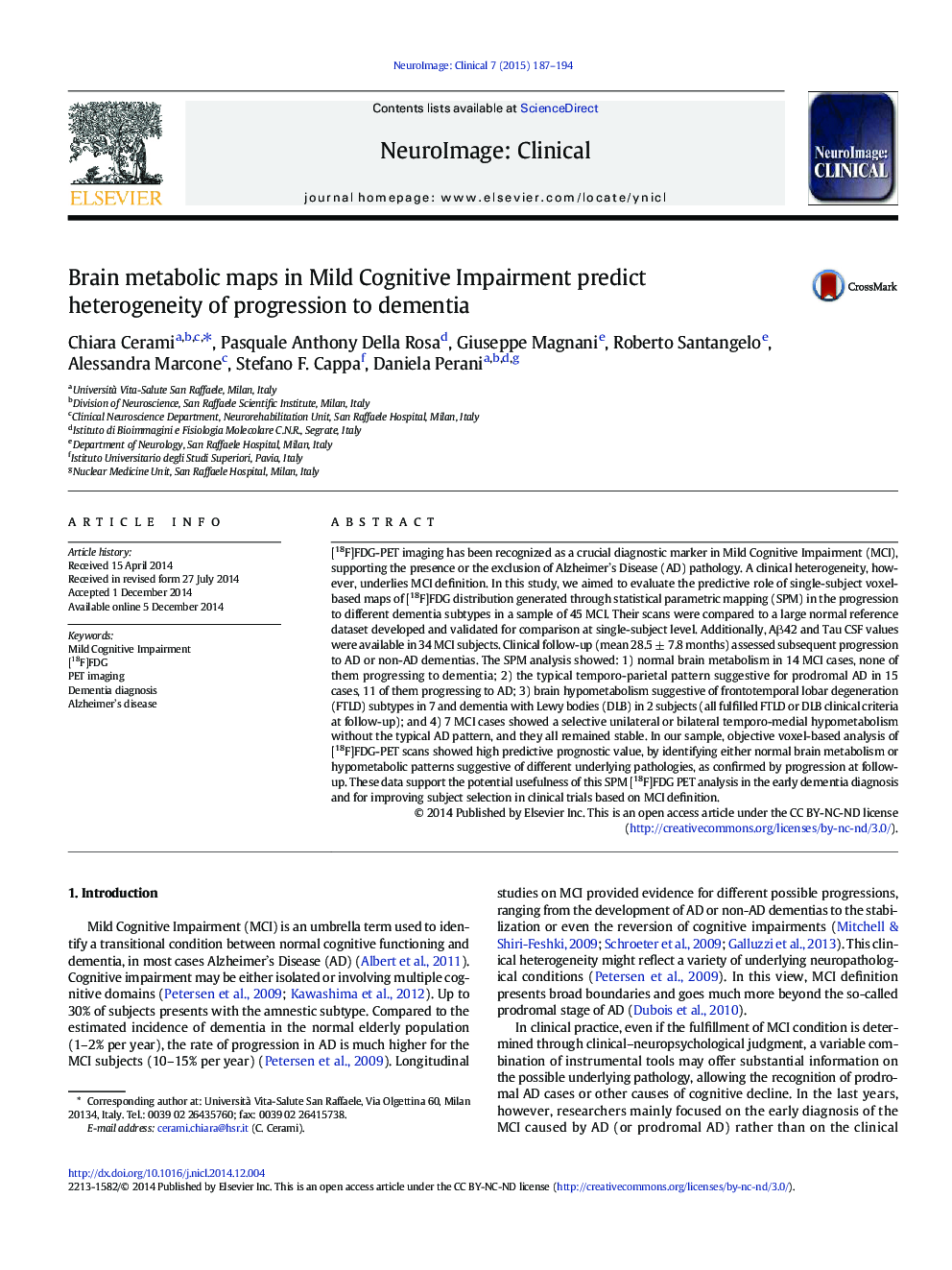| کد مقاله | کد نشریه | سال انتشار | مقاله انگلیسی | نسخه تمام متن |
|---|---|---|---|---|
| 3075070 | 1580960 | 2015 | 8 صفحه PDF | دانلود رایگان |
• We used an optimized voxel-based single-subject [18F]FDG-PET analysis
• We showed different hypometabolic patterns (AD and non-AD) underlying MCI condition
• Heterogeneous PET profiles predicted progression into specific dementia subtypes.
• Statistical analyses showed high positive and negative post-test probability values.
• CSF findings agreed with [18F]FDG-PET imaging in single cases.
[18F]FDG-PET imaging has been recognized as a crucial diagnostic marker in Mild Cognitive Impairment (MCI), supporting the presence or the exclusion of Alzheimer's Disease (AD) pathology. A clinical heterogeneity, however, underlies MCI definition. In this study, we aimed to evaluate the predictive role of single-subject voxel-based maps of [18F]FDG distribution generated through statistical parametric mapping (SPM) in the progression to different dementia subtypes in a sample of 45 MCI. Their scans were compared to a large normal reference dataset developed and validated for comparison at single-subject level. Additionally, Aβ42 and Tau CSF values were available in 34 MCI subjects. Clinical follow-up (mean 28.5 ± 7.8 months) assessed subsequent progression to AD or non-AD dementias. The SPM analysis showed: 1) normal brain metabolism in 14 MCI cases, none of them progressing to dementia; 2) the typical temporo-parietal pattern suggestive for prodromal AD in 15 cases, 11 of them progressing to AD; 3) brain hypometabolism suggestive of frontotemporal lobar degeneration (FTLD) subtypes in 7 and dementia with Lewy bodies (DLB) in 2 subjects (all fulfilled FTLD or DLB clinical criteria at follow-up); and 4) 7 MCI cases showed a selective unilateral or bilateral temporo-medial hypometabolism without the typical AD pattern, and they all remained stable. In our sample, objective voxel-based analysis of [18F]FDG-PET scans showed high predictive prognostic value, by identifying either normal brain metabolism or hypometabolic patterns suggestive of different underlying pathologies, as confirmed by progression at follow-up. These data support the potential usefulness of this SPM [18F]FDG PET analysis in the early dementia diagnosis and for improving subject selection in clinical trials based on MCI definition.
Journal: NeuroImage: Clinical - Volume 7, 2015, Pages 187–194
